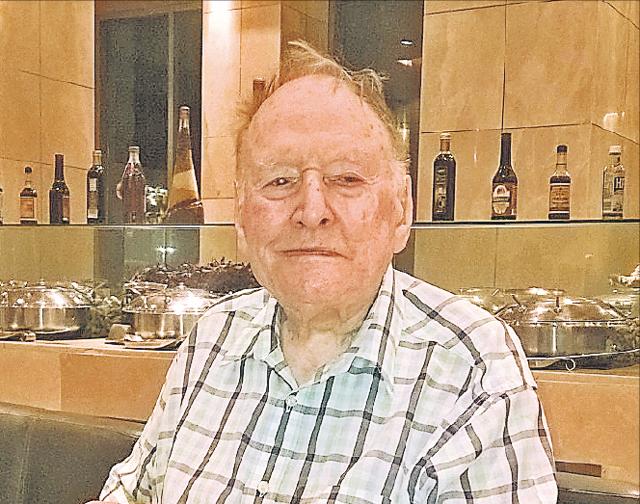Indian soldiers were bravest, says WW-II British army commander
“Indian soldiers were the bravest of the brave. It was an honour to command them,” says Major Tom Conway (retd), 98, one of the last surviving British officers who had commanded Indian soldiers.
“Indian soldiers were the bravest of the brave. It was an honour to command them,” says Major Tom Conway (retd), 98, one of the last surviving British officers who had commanded Indian soldiers.

Major Conway was in Amritsar on Sunday for the inaugural ceremony of War Memorial and had come to north India after 80 years. “They (state government) wanted other officers around as well, but probably I am the only one surviving,” he says.
A World War-II veteran and one of the heroes of Battle of Alamein, he had commanded the Dogras, Sikhs and Pathans.
Major Conway joined the British Army in April 1940. “I volunteered to join the Indian Army in Egypt. I had heard and read so much about India. I had read Rudyard Kipling and I was also impressed from the tales of valour of the Indian soldiers,” he says. He joined Guides Cavalry where he commanded companies of Dogras, Sikhs and Pathans. “Dogras were the quietest. It was being said that they were easier to command. But they were all good,” he adds. “I used to take train from Pathankot to Kullu valley which used to run at ten past midnight daily. I used to visit Dogra soldiers’ families to get to know them better,” he recalls.
World War-II with Indian soldiers
In 1941, Guides Cavalry was a reconnaissance regiment for 8 Indian Division in Egypt. “We were armed with wheeler carriers, made by Tata,” he narrates. Then they went to Syria. “One of our brigades was overrun. We were retreating,” he adds. Then he was asked to go to Sudan where he commanded the Sikhs.
In November 1942, the Battle of Alamein took place in Egypt where he was one of the heroes and got a medal too. “First time in 3 years, Germans had a major defeat. Churchill (Winston) said it was not the end of war but the beginning of the end. Our job was to keep the Army chasing,” he says. Then he was sent to Iraq to check Germans from the North, but they instead attacked Russia and tasted reverses.
“By the beginning of 1943, there was no threat to Middle East. I was sent to India. I was to engage in Burma (Myanmar) with 15 Indian Division but was sent to North West Frontier area as small-scale battles were going on there. I commanded Dogras there,” he adds.
In 1944, he went to Britain for a month which was his first leave in four years. He looked after Indian contingent in London and retired after victory parade in 1946.
“It is wrong to say that the British only recruited martial races in India. In the 18th century, most of the soldiers in the Army used to be from the Southern parts,” he says. After going back to Britain, he married a Chinese teacher and stayed in Japan for about 25 years. “I would love to go back to Kullu valley again…Though I do not know whether I would be able to make it,” he says.
Also read | Badal opens Rs 130-crore war heroes museum in Amritsar, promises defence helpline




